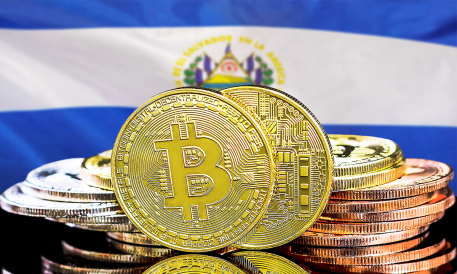
Cryptocurrency has evolved from a niche internet experiment to a central participant in global finance in the span of just over a decade. Currently, in 2025, its impact is global, extending from the sophisticated digital finance ecosystems of Asia to the ambitious experiments with Bitcoin in Latin America. Some nations are embracing, while others are restricting, and others are still cautiously navigating this new frontier. Countries across the spectrum are responding in radically different ways.
Therefore, what is the current state of the cryptocurrency industry? We will embark on a journey from El Salvador to Singapore to investigate the ways in which the world is both influenced by and shaped by the proliferation of digital currencies.
El Salvador: The Bitcoin Pioneer 🇸🇻
In 2021, El Salvador made history by becoming the first country to adopt **Bitcoin as legal tender**. The journey has been attentively monitored since that time. The ambitious initiative was designed to reduce remittance fees, promote tourism, and increase financial inclusion.
**By 2025:**
* Infrastructure projects have been partially funded by **Bitcoin Bonds**. In urban areas, adoption is consistently increasing, despite the fact that it remains limited among citizens. Additionally, the government is constructing a **Bitcoin City** that is powered by geothermal energy. El Salvador has established itself as a global Bitcoin ambassador, despite the fact that critics continue to question its long-term sustainability and volatility.
—
## **Nigeria: Adoption Driven by Necessity**
Nigeria, the largest economy in Africa, has one of the highest crypto adoption rates in the world, primarily due to inflation, a youthful, tech-savvy population, and limited access to traditional banking channels.
**By 2025:**
* Despite government opposition, peer-to-peer trading continues to flourish. Limited momentum has been achieved by Nigeria’s CBDC, the **eNaira**. Fintech innovation related to cryptocurrency continues to expand, despite the fact that regulatory clarity is still a work in progress.
—
## 🇧🇷 **Brazil: Managing the Crypto Boom**
Brazil has implemented substantial measures to incorporate cryptocurrency into its financial system. The central bank is currently conducting a demonstration of its own **CBDC**, the Drex, and the government acknowledges digital assets as a form of payment.
**By 2025:**
* Crypto trading services are provided by major banks. * Growth is facilitated by regulation, which includes licensing frameworks for exchanges. * In Latin America, Brazil is emerging as a center of crypto innovation.
—
## **United States: Regulated Growth**
In 2024, the United States legislated comprehensively to define digital assets and stablecoins, following years of regulatory uncertainty. Cryptocurrency is now an integral component of the financial mainstream, particularly in investment portfolios.
**By 2025:**
* Stablecoin issuers operate under transparent, bank-like regulations. * Spot Bitcoin and Ethereum ETFs are broadly accessible. DeFi continues to develop within legal frameworks.
—
## 🇨🇳 **China: Blockchain, Not Bitcoin**
Although China has prohibited private crypto transactions and mining, it continues to be a leader in **state-run blockchain initiatives**. Its **digital yuan (e-CNY)** is fully operational and is utilized in millions of transactions each day.
**By 2025:**
* e-CNY is integrated with public services, e-commerce, and transportation. * Blockchain technology is employed in trade and logistics, but only within government-approved platforms. * Innovation flourishes—but solely within the state’s jurisdiction.
—
## 🇮🇳 **India: High Taxes, High Usage**
India has not recognized cryptocurrency as legal tender, but it has not prohibited it either. Rather, it has imposed a significant tax on it while simultaneously creating its own digital rupee.
**By 2025:**
* Gains from cryptocurrency transactions are subject to a 30% tax rate and mandatory transaction disclosures. Millions utilize cryptocurrency for savings and remittances, despite the fact that it is subject to substantial taxes.
* In retail trials, the **digital rupee** is gaining momentum.
—
## 🇸🇬 **Singapore: Asia’s Crypto Haven**
Singapore is a global center for cryptocurrency. The regulatory clarity, innovation-friendly policies, and support for financial technology have all attracted significant participants.
**By 2025:**
* The MAS (Monetary Authority of Singapore) issues licenses to numerous crypto firms. * Singapore is a pioneer in cross-border CBDC collaborations and green blockchain finance. The fintech and trade sectors are profoundly influenced by cryptocurrency.
**The Global Landscape in 2025**
The global landscape is unified by a few themes, despite the fact that the trajectory of crypto varies across the globe:
**Recurring Themes**
* **CBDCs are the standard**: They are being developed or tested in more than 100 countries.
* Transactions are primarily dominated by stablecoins, particularly in emerging markets.
**The question of “if” is no longer relevant; it is now “how.” ** * **In the Global South, innovation is being fueled by youth-driven adoption**.
**The Division**
* **Open ecosystems** (EU, Brazil, Singapore): Cryptocurrency is regulated but encouraged.
* **Adopters who exercise caution** (India, United States): Growth is permitted despite stringent regulation.
* **Regulated environments** (e.g., China, Russia): Blockchain utilization without cryptocurrency autonomy.
In summary, the current state of cryptocurrency is both local and global.
Cryptocurrency in 2025 is a mosaic of ambition, adaptation, and realignment, ranging from the Bitcoin experiment in El Salvador to the fintech excellence of Singapore. Although no single nation has discovered the ideal formula, the majority of nations now acknowledge that digital assets are here to stay.
The journey continues, one nation at a time, block by block.
Leave a Reply